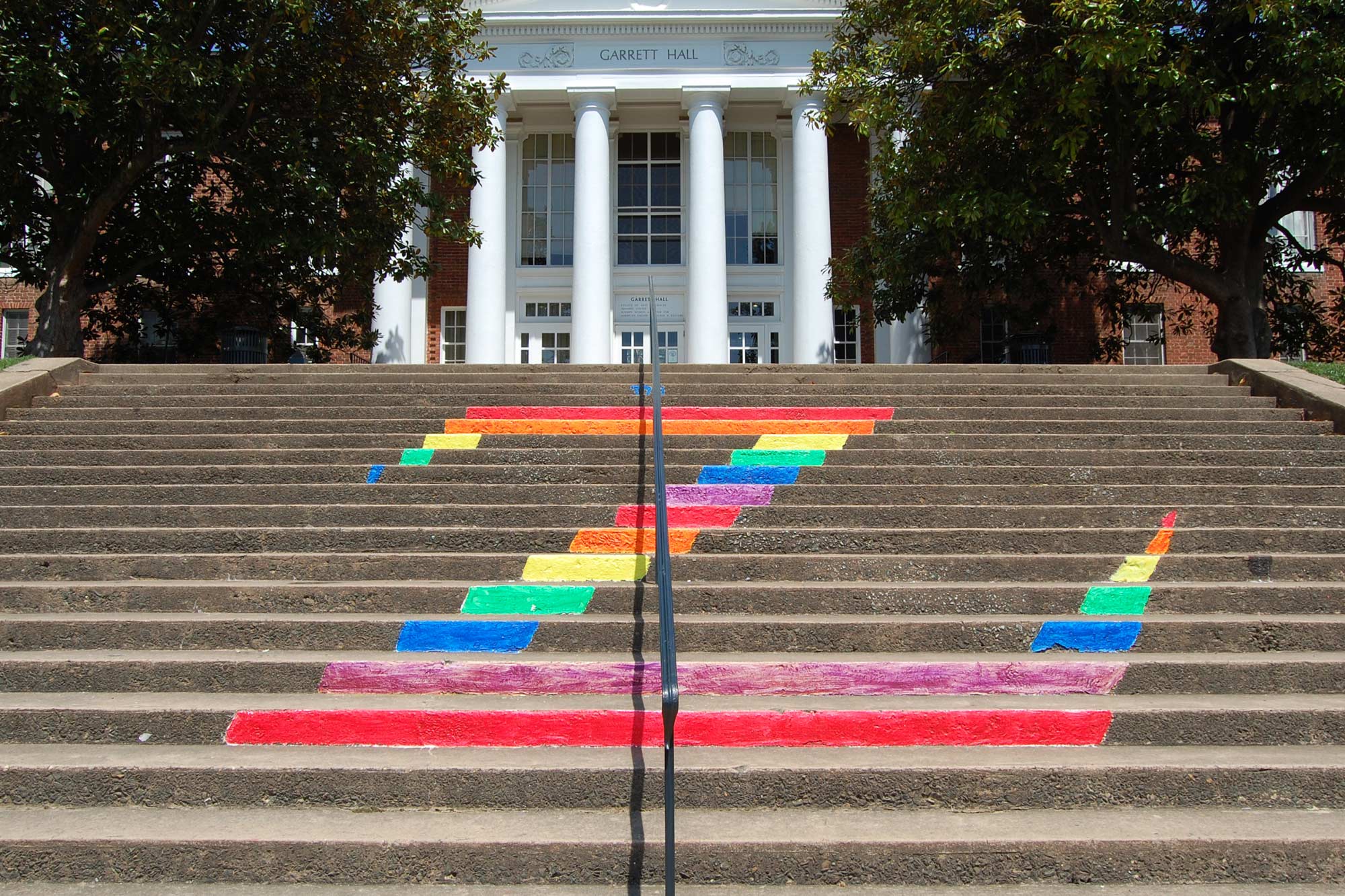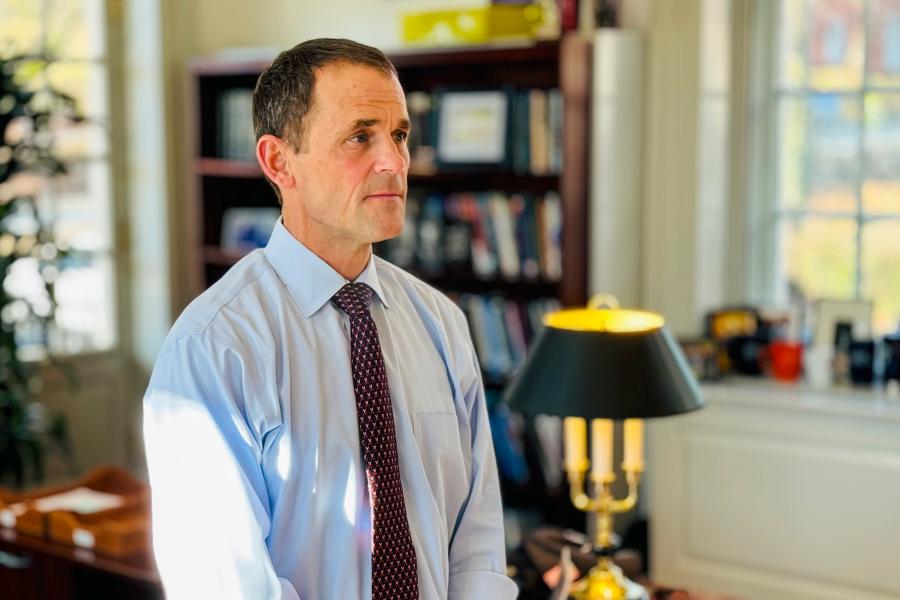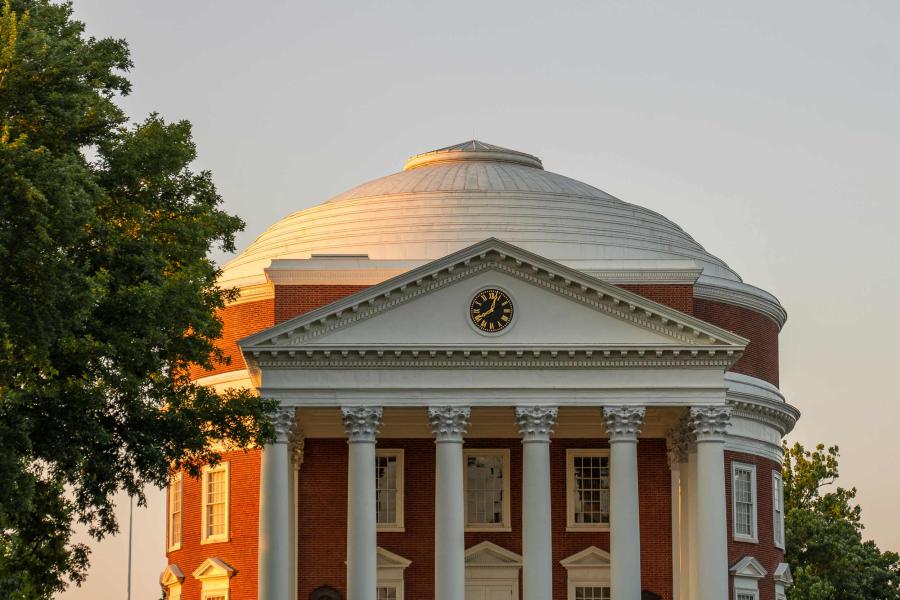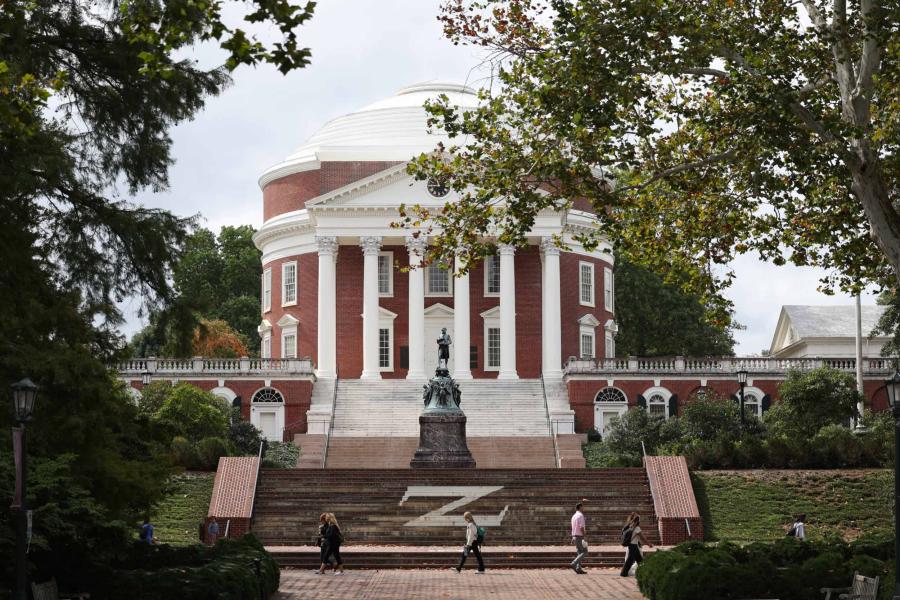As a student at the University of Virginia in the late 1980s, Gary Nimax tended to hold back on sharing parts of his life and background with others.
“My parents both immigrated to the U.S. from Luxembourg. I’m the first person in my family to graduate from college,” said Nimax, who has worked at UVA since 1989 and currently serves as assistant vice president for compliance. “I received financial aid to cover part of my expenses at UVA, and I’m gay.”
Nimax, who also has chaired the University’s LGBT Committee since its creation a decade ago, said the characteristics that defined him as a young person caused discomfort or even embarrassment at the time.
“I didn’t share those parts of myself with people,” he said. “However, I learned to embrace these differences and they each give me a sense of pride. I wouldn’t change any of those things about myself, even if I could. It’s definitely influenced who I am.”
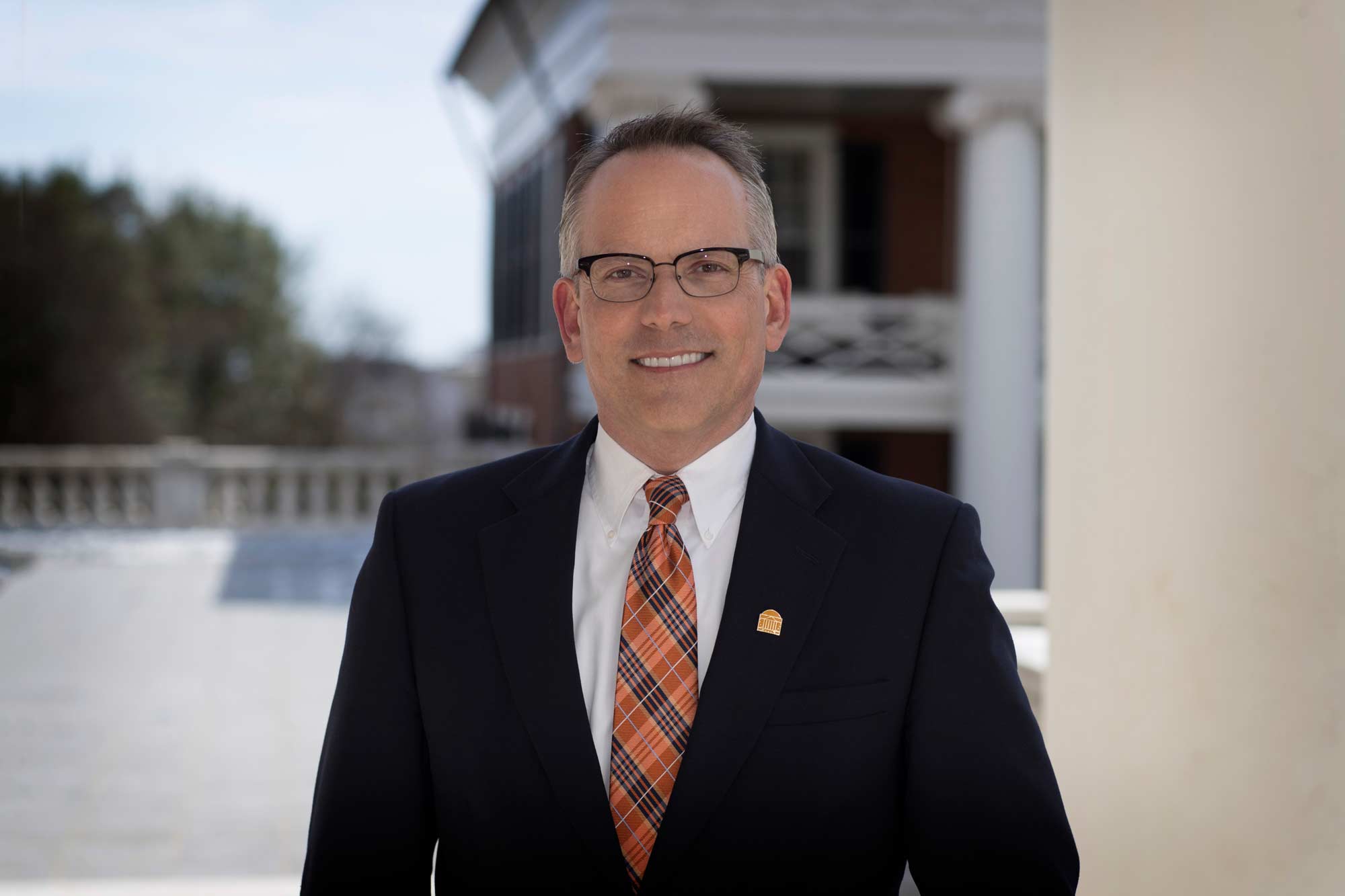
His personal experience is a key reason Nimax remains passionately involved in the work of the LGBT Committee, which is a subcommittee of the UVA Diversity Council. UVA Today recently caught up with Nimax to discuss progress made at UVA and what the committee is focusing on next.
Q. How does the committee decide what to discuss or work on? Is the focus on outreach or policy?
A. Our committee members bring concerns to the group, and we hear from members of the LGBT community. We benchmark with our peer institutions and review best practices identified by organizations such as the Campus Pride Index and the Human Rights Campaign. We focus on multiple goals, including policy, benefits, education, outreach and events. While our focus is on faculty and staff in the Academic Division and the medical center, we’ve also worked on projects to benefit LGBTQ students and patients, especially policy issues.
It is critical to me that our group be seen as a resource, rather than as a group that complains or protests. When we identify problems, we also identify potential solutions, collaborate with peers, review best practices, provide pros and cons, and offer to help with implementation. That approach has maintained open lines of communication with senior leaders and departments responsible for making necessary changes. And more importantly, that approach has been successful.
Q. How has the work of the committee changed over the years?
A. Initially we were focused more heavily on policies and benefits. The University was an early adopter of having sexual orientation included in our non-discrimination policy when it was added in 1991. However, the University was much later in adding gender identity (2014) and gender expression (2019) to its policies. We also worked on improving health care coverage, including benefits for transgender employees and students.
More recent efforts have focused on outreach and events. We hold an annual welcome reception in the fall, participate in the local C-ville Pride events, and seek ways to incorporate LGBTQ issues in training. We’ve also partnered with a number of local organizations to spotlight and support their queer content, such as the Festival of the Book, Virginia Film Festival, Jefferson-Madison Regional Library, and the Osher Lifelong Learning Institute at UVA.
Q. What are some of the key successes you’d credit at least in part to the work of the committee?
A. I think the policy and benefits changes are key. The fact that the LGBTQ community is covered by our protected classes can be life-changing. I remember the day I could finally enroll my husband in the University’s health plan. As a Realtor, he doesn’t have employer-provided health insurance and he was paying a fortune for it on his own. Many people don’t have the luxury of being able to afford quality health insurance on their own.
You can find a summary of the University’s accomplishments in LGBTQ equity and inclusion on the committee’s website. Our committee deserves credit, but we didn’t do it alone. We’ve had supportive University leaders and colleagues who have made a difference in numerous ways.
Q. You’ve been a part of the UVA community for some time now. What are your thoughts about how UVA has evolved in its support of LGBTQ issues and communities?
A. I remember vividly when President John Casteen added sexual orientation to our non-discrimination policy in 1991. That was especially memorable for me, as a relatively new employee who was concerned about the possibility that being openly gay could cause me to be fired or limit my ability to be promoted.
I was inspired by notable faculty members, like Bernard Mayes and Charlotte Patterson, who were early advocates for our community. It gave me the courage to come out at work and I had a positive experience when I did. I was really worried about coming out to my boss, but he assured me that it would not be an issue. In fact, he promoted me twice after I came out.
I’m glad I was able to share that experience with President Casteen years later when discussing LGBTQ issues with him. His policy change had a major impact.
By the early 2000s, I talked about being gay during an interview for a new job at UVA because I wanted to make sure it wasn’t going to be an issue, and I wasn’t going to hide it from anyone. That was when Yoke San Reynolds, our since-retired vice president and chief financial officer, hired me as an assistant vice president in her office. When the Diversity Council was created, she asked me to represent her VP area, because she did not want LGBTQ issues to be forgotten. That really sparked my interest in advocating for diversity of all kinds. Yoke San continues to be an incredible ally to the LGBTQ community, and she remains my mentor and friend.
However, I still encounter employees and students who are hesitant to come out to family or colleagues. Members of our community continue to deal with these issues, even with all the progress we’ve made.
Q. Why is that continued evolution good for the institution and all members of the University community?
A. We all benefit from defining diversity as broadly as possible and making everyone feel welcome. I want these communities and other minority groups to thrive at UVA, find their peers and support systems, and enjoy the sense of belonging that I have. Of course, I acknowledge that my journey was easier as a white cisgender male, who had accepting parents and mostly supportive supervisors.
Our new students and employees need to see themselves represented in senior leadership, health care providers, faculty, staff and peers. That’s why it matters when we had our first LGBTQ dean, VP, or Student Council president. In a perfect world, it shouldn’t matter, but people need to see that it’s possible for us to excel and work in a variety of fields.
Q. What’s next for the committee?
A. First of all, we’re looking forward to having an in-person welcome reception for faculty and staff again this fall. We’ll be improving our committee website to add links to other local and national resources. I want to share information about the history of our community at UVA. There are some additional benefits issues to explore. I want all members of the LGBTQ community to feel part of the broader UVA community.
Media Contact
Article Information
July 13, 2025

